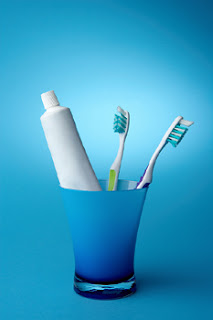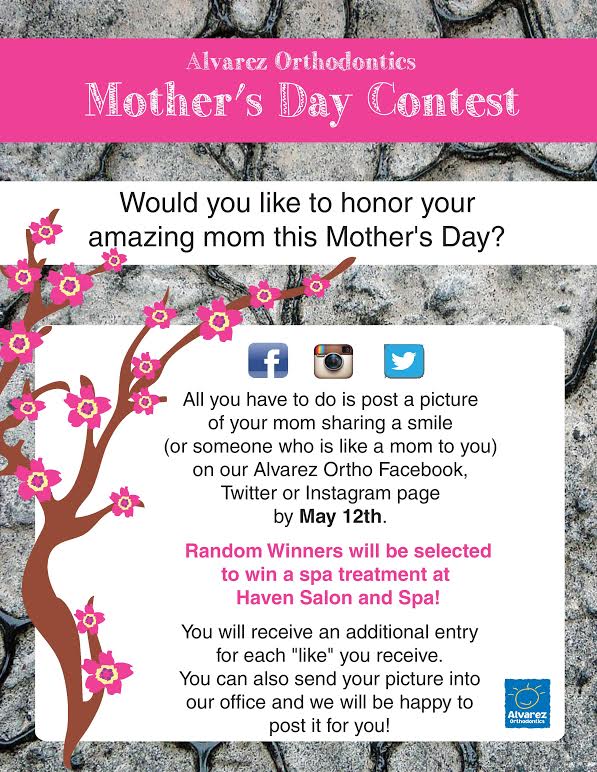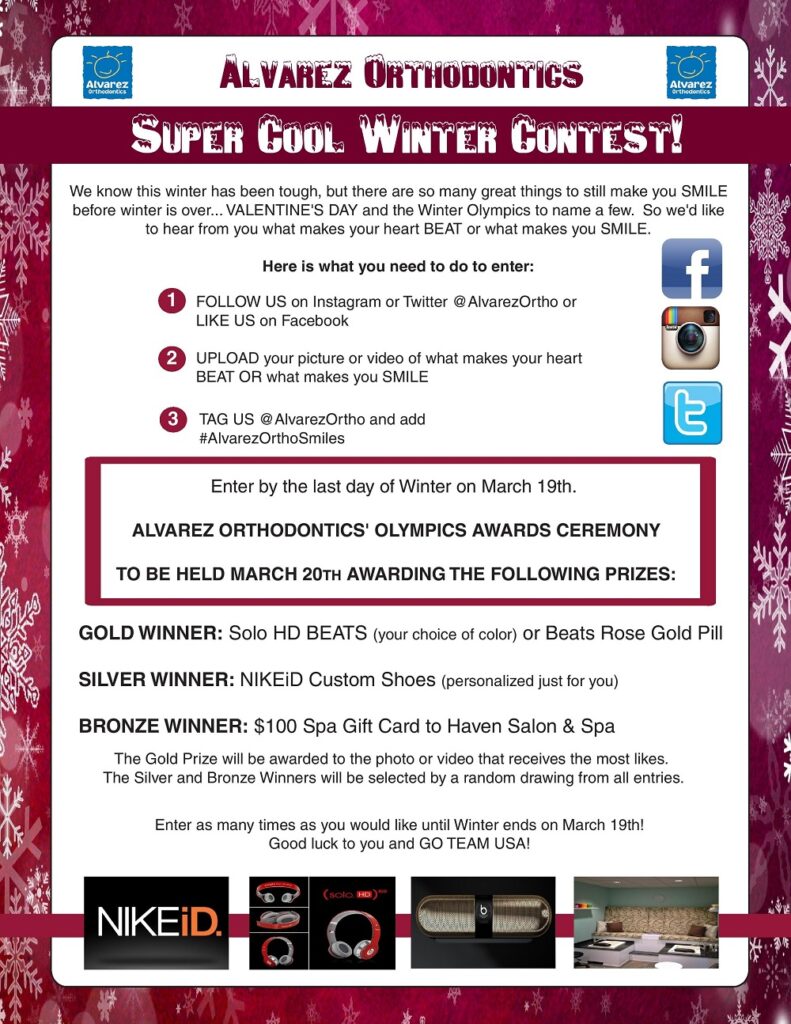May 29th, 2014
Some of you may have learned about the Fresh Air this weekend if you had a chance to stop by their table at the Coopersburg 5K Run and Health and Wellness Expo. Even if you did not, we would encourage you to check out their website at fresh air.org and/or contact the Fresh Air Fund's Lehigh Valley director, Jenae Holtzhafer atlvfreshair@gmail.com or 484-350-9300. The Fresh Air program allows kids from New York City to get out of the city and enjoy the "fresh air", spending time with a local family. Jenae and the Lehigh Valley chapter do an amazing job at providing a ton a fun activities that host families can participate in, many of which are free. Of course, participation in these opportunities is completely optional. We have enjoyed the opportunity to be a host family for over six years. It has been a rewarding experience not only for the young man we sponsor, but also for each member of our family. This program is very flexible and can work around your busy summer schedule. Some families choose to host a child for one week and others add on additional weeks. The choice is completely up to you. Please stop by one of our offices and pick up a brochure or to ask more questions!
May 29th, 2014
We enjoyed being a sponsor last weekend at the Coopersburg 5K Run and Kids' Fun Run and participating in their Health and Wellness Expo. It was fun sharing information about the health benefits of braces and also fun watching people enjoy a post-run Zumba workout! The road to the 9th Annual 2015 Coopersburg 5K Run has begun, so start training now!
March 3rd, 2013

This is a question we hear all the time. Malocclusion, or what we call having a “bad bite,” is the improper alignment of teeth and/or jaws. When your teeth and jaws are not properly aligned, it may impact your bite, the ability to properly care for your teeth, your gum tissue health and even your appearance. Most people will experience some degree of malocclusion, but it generally is not severe enough to require orthodontic treatment. If your malocclusion is serious enough, however, treatment may be necessary to correct the issue.
Untreated malocclusion can lead undesirable mouth problems, including tooth decay, gum disease, or chipped and cracked teeth. The most common solution for malocclusion, of course, is orthodontic treatment. The actual course of treatment, including the length of time you will require braces, will be determined by severity of your malocclusion. The goal of your treatment is to move your teeth into the proper position and correct any misalignment in the jaw.
We use the most advanced technology in the field in order to ensure that you receive the best possible results. If you have any questions about malocclusion or about starting your orthodontic treatment, please give us a call!
February 24th, 2013

Thank you for the question. In an age—and society—where looks matter as much as anything, and at a time when evenly-aligned teeth might be the difference between getting a job or a promotion, adults are choosing—wisely, we think—to invest in orthodontics. Orthodontic treatment can be successful at any age, and we know that adults especially appreciate the benefits of a beautiful and healthy smile.
If you are still apprehensive about getting braces as an adult, there is another straightening teeth option called Invisalign, which uses a series of invisible, removable and comfortable aligners that no one can tell you’re wearing. If you’ve been thinking about getting that perfect smile, we would love to have you visit for an initial consultation! Please give us a call to set one up!
February 17th, 2013

By now, you’re probably familiar with our blog-writing process: Each week, we write about important orthodontic topics and your well-being, including the treatments we proudly offer.
This week, though, we thought we’d step back and ask you, our amazing patients: what’s on your mind? What would you like to know about the always-changing and exciting field of orthodontics? What would you like us to focus on our blog? Perhaps there’s something you’ve wanted to ask us for a while now? Here’s your chance! Let us know by posting here or on our Facebook page! Give us your best shot, and we’ll try to answer any question you may have!
February 10th, 2013

You may remember our post from last week, when we discussed February being “National Children’s Dental Health Month.” But did you know February also marks American Heart Month?
It’s a great time to take notice of the health of your heart as cardiovascular disease remains the leading cause of death in the world, according to the American Heart Association. Studies have shown a correlation between gum disease and heart disease, underscoring the importance of good oral health care, especially while you are undergoing orthodontic treatment.
Visiting your dentist on a regular basis during your orthodontic treatment not only ensures a successful outcome, but can also help prevent gum disease or at least catch it in its early stages. In observance of Heart Month, it’s also important to know your numbers: blood pressure (less than 120/80), cholesterol (less than 200) and BMI (less than 25).
If you have any questions about heart health, about the importance of visiting your dentist or about your treatment at our office, please give us a call today!
February 3rd, 2013
 Each February for the past 63 years, our friends at the American Dental Association have sponsored National Children’s Dental Health Month to raise awareness about the importance of oral health at a young age, and especially during your orthodontic treatment. Developing good habits at an early age and scheduling regular visits with your dentist—even while you’re wearing braces—helps our young patients get a good start on a lifetime of healthy teeth and gums.
Each February for the past 63 years, our friends at the American Dental Association have sponsored National Children’s Dental Health Month to raise awareness about the importance of oral health at a young age, and especially during your orthodontic treatment. Developing good habits at an early age and scheduling regular visits with your dentist—even while you’re wearing braces—helps our young patients get a good start on a lifetime of healthy teeth and gums.
For kids wearing braces, brushing and flossing can become more difficult, requiring extra time and effort to remove food particles that accrue on and between your teeth and braces. If you ignore your oral health during your treatment, the results can be significantly compromised. We are happy to explain why effective brushing and flossing is so critical during orthodontic treatment. If you have any questions, please feel free to give us a call, ask us on Facebook or ask us at your next adjustment appointment!
January 27th, 2013
 Some folks believe your chances of being struck by lightning increases when you have braces, while other folks believe having braces interferes with romance, and even metal detectors as you try to make your way through the airport for a much-needed vacation. Trust us when we say we know there are quite a few myths about braces out there these days. But before you buy into those myths, we think you should get the facts first! To help set the record straight, here is some great information on the myths and facts of orthodontics. We encourage you to check them out today!
Some folks believe your chances of being struck by lightning increases when you have braces, while other folks believe having braces interferes with romance, and even metal detectors as you try to make your way through the airport for a much-needed vacation. Trust us when we say we know there are quite a few myths about braces out there these days. But before you buy into those myths, we think you should get the facts first! To help set the record straight, here is some great information on the myths and facts of orthodontics. We encourage you to check them out today!
If you have any questions about braces or your orthodontic treatment, please feel free to give us a call or ask us on Facebook! Smile bright!
January 20th, 2013

We love when patients ask us this question! Now that you’re wearing braces, it’s just as important to maintain a good oral hygiene regimen as you did before your orthodontic treatment began. The first few days in braces are going to be more difficult to eat than normal. There will be a slight discomfort when you first get your braces on, so the act of chewing will make it slightly more painful.
Here are a few soft foods that do not require you to do much chewing and are easy to chew on when your teeth are sore:
Ice cream, yogurt, pudding, cool soups, Jell-O, scrambled eggs, cream of wheat, baked potatoes, soft cooked pasta, soup, bananas, cottage cheese, smoothies, macaroni and cheese, pancakes, soft cheeses, and milk are all foods you can eat safely without having to worry about pain or breaking your brackets.
Be sure to always check with us if you have questions about a particular food item by either giving us a call or asking us on Facebook!
January 13th, 2013

If you’re undergoing orthodontic treatment, brushing and flossing after every meal and snack is the only way to prevent plaque build-up, tooth decay and gum disease. Your teeth will need extra care, especially during treatment at our office. Our goal is for you to have a beautiful healthy smile, and in order for us to achieve this good hygiene on your end is very important. Food and particles are known to get trapped by brackets, wires, bands and appliances, and this can make it difficult to keep your teeth clean. Using a Waterpik is another great way to clean teeth and gums. Here are a few tips to help with keeping your teeth clean and healthy during your orthodontic treatment:
1. Brush after every meal or snack
2. Floss daily to remove trapped food and particles
3. Rinse after eating with mouthwash to kill any bacteria
4. Brush with a fluoride toothpaste and a soft-bristled tooth brush
5. Clean teeth with a proxabrush
6. Maintain regular check-ups with your general dentist throughout your treatment
We hope these tips help. For more information, we encourage you to give us a call, ask us on Facebook or ask us during your next adjustment visit!
January 7th, 2013
 The dreaded cold and flu season is here again! After recovering from your cold, one of the most important steps you can take to avoid becoming reinfected is replacing your toothbrush!
The dreaded cold and flu season is here again! After recovering from your cold, one of the most important steps you can take to avoid becoming reinfected is replacing your toothbrush!
Germs can linger on the bristles, and you risk prolonging your sickness by continuing to use the same toothbrush. Be smart - keep a spare, just in case! To protect your toothbrush from bacteria all year long, consider the following tips:
• Wash your hands before and after brushing
• Allow the brush to air dry after each use, harmful bacteria dies after being exposed to oxygen
• Store the toothbrush in an upright position to allow water to drain and dry faster
• Replace your toothbrush every 3-4 months. Worn bristles are less effective in properly cleaning your teeth, and can actually be damaging to teeth if used too long!
We hope these tips help! Feel free to give us a call or ask us on Facebook if you have any questions!
December 30th, 2012
 With the year almost over, we thought we would ask you, our dear patients: what was memorable about 2012 for you, and what are you looking forward to in 2013? Do you have a new year's resolution, or any exciting plans for the coming year?
With the year almost over, we thought we would ask you, our dear patients: what was memorable about 2012 for you, and what are you looking forward to in 2013? Do you have a new year's resolution, or any exciting plans for the coming year?
We want to wish all our patients, friends, family and all our dental and medical colleagues a happy and healthy New Year!
December 23rd, 2012

Millions of patients undergoing orthodontic treatment will not be smiling this holiday season, and not because they didn't get the gift they wanted. These are people whose teeth and/or braces fall victim to the hard, chewy, gummy or sticky holiday treats.
We know orthodontic emergencies are never convenient nor timely. If you are a patient of record, we are committed to your oral health and are available to you. As a general rule, you should call our office when you experience severe pain or when you have a painful appliance problem that you can't take care of yourself. You might be surprised to learn that you may be able to temporarily solve many problems yourself until you schedule an appointment. When working with your appliances, you need to know the names of the parts of your appliances so you are able to identify what part is broken or out of place. After alleviating your discomfort, it is very important that you still call our office as soon as possible to schedule a time to repair the problem. Allowing your appliance to remain damaged for an extended period of time may result in disruptions in your treatment plan.
If you have a orthodontic emergency after regular office hours, please give us a call and follow the emergency prompts to contact our team! We hope you're having a great holiday season!
December 17th, 2012
 In this season given to tidings of comfort and joy, and as we reflect on the year that was, we’d like to ask you, our wonderful patients: What do you love about the holidays this year? Being with your loved ones? Hitting the slopes? A clean slate for 2013? Opening presents by the fireplace? All the delicious food?
In this season given to tidings of comfort and joy, and as we reflect on the year that was, we’d like to ask you, our wonderful patients: What do you love about the holidays this year? Being with your loved ones? Hitting the slopes? A clean slate for 2013? Opening presents by the fireplace? All the delicious food?
Also, what gift are you most looking forward to getting this year? We’d love if you shared with us all the things you love about the holidays. Stay warm, and don’t forget to stay away from those sweets!
December 13th, 2012
 2013 is almost here, and it's a great time of year to get started on a lifetime of straight, dazzling and confident smiles. We are proud to offer some of today's most innovative orthodontic technologies that can straighten your smile in less time than you ever imagined. Not only do today’s braces and other orthodontic treatments straighten your teeth quicker, they also offer greater comfort for you, and require fewer visits to our office.
2013 is almost here, and it's a great time of year to get started on a lifetime of straight, dazzling and confident smiles. We are proud to offer some of today's most innovative orthodontic technologies that can straighten your smile in less time than you ever imagined. Not only do today’s braces and other orthodontic treatments straighten your teeth quicker, they also offer greater comfort for you, and require fewer visits to our office.
So if obtaining a healthy, beautiful smile is one of your New Year’s resolutions, we invite you to give us a call to schedule an initial orthodontic consultation. Happy holidays!
December 2nd, 2012

Did you know there is a direct correlation between your bite and your overall health? When your teeth and jaws are not properly-aligned, it may affect your breathing, speech, and, in extreme cases, even affect the appearance of your face. As a result of malocclusion, also commonly referred to as “bad bite,” your teeth may become crooked, worn or protruded over time. Most people experience some degree of malocclusion, but it is generally not severe enough to require corrective measures. If your malocclusion is serious enough, however, orthodontic treatment may be necessary to correct the issue.
Malocclusion may also be referred to as an underbite, crossbite or overbite. So, what, exactly, is the difference between the three?
· Crossbites, which can involve a single tooth or a group of teeth, occur when your upper and lower jaws are both misaligned, and usually causes one or more upper teeth to bite on the inside of the lower teeth. Crossbites can happen on both the front and/or the sides of the mouth, and are known to cause wear of the teeth, gum disease and bone loss.
· Overbites, also known as “overjet,” occurs when your upper teeth overlap considerably with the lower teeth. Overbites can lead to gum issues or irritation and even wear on the lower teeth, and are known to cause painful jaw and joint problems. Overbites can usually be traced to genetics, bad oral habits, or overdevelopment of the bone that supports the teeth.
· Underbites, which occur when the lower teeth protrude past the front teeth, are caused by undergrowth of the upper jaw, overgrowth of the lower jaw, or both. Underbites can also be caused by missing upper teeth, which can prevent the normal function of front teeth ( molars). This in turn leads to tooth wear and pain in your joints and jaw.
Fortunately, we are able to treat bite problems. If you suspect you or your child has a bite misalignment, we encourage you to be examined at our office as early as possible. By starting early, you can make sure you or your child avoid years of pain and self-consciousness.
November 28th, 2012

Many of our patients consider the beginning of a new year a time to not only reflect on the year that was, but also to set personal goals for the upcoming year. How are you planning to improve your health and happiness in 2013? Because it's never too early to start thinking about New Year's resolutions, we recommend that you make a New Year’s resolution to benefit your oral health!
It’s important that New Year’s resolutions are reasonable and attainable, and that they improve your overall quality of life—for example, did you know that flossing every day is the very best way to prevent periodontal, or gum disease during your orthodontic treatment? Using a straw when drinking sugary beverages can also help prevent cavities while you’re wearing braces. There are many small steps that you can take to prevent cavities, oral infections and bad breath.
Be sure to give us a call if you need a few suggestions on ways to improve your oral health. After all, oral health is about more than just a beautiful smile.
If your resolution is to attain a great-looking smile, we’d love to help! Please give us a call and schedule your initial consultation. We look forward to working with you and your family!
Happy holidays!
November 19th, 2012

With Thanksgiving almost upon us, it’s a great time to ask ourselves what we’re thankful for. With our friends and family around us, we celebrate the blessings given to us in the past year. Our staff thought we’d ask: What are you thankful for this holiday season? Do you have any Thanksgiving wishes or recipes you would like to share?
Our entire team would like to wish you a safe and happy Thanksgiving. It’s a big food holiday, so be careful what you eat with those braces! If you have any stories or photos to share with us, we’d encourage you to send them along or post them below or on our Facebook page!
Gobble Gobble!
November 15th, 2012
 Just hearing the word “braces” can take many of us back to junior high — that painful era when we wore unattractive glasses, endured unflattering haircuts, and carried a mouthful of braces to complete the awkward adolescent look. Despite the common assumption that braces are for kids, more and more adults are choosing to pursue orthodontics to correct their smiles.
Just hearing the word “braces” can take many of us back to junior high — that painful era when we wore unattractive glasses, endured unflattering haircuts, and carried a mouthful of braces to complete the awkward adolescent look. Despite the common assumption that braces are for kids, more and more adults are choosing to pursue orthodontics to correct their smiles.
Braces for Adults
Perhaps you never had braces as a kid and you are embarrassed by your crooked teeth. Or you went through a round of braces a decade ago and stopped wearing your retainer, which allowed your teeth to shift. Whatever your personal history, wearing braces in adulthood is an excellent way to create the straight, beautiful smile you deserve.
What Are My Options?
With recent advances in orthodontic medicine, there are numerous options for adults who need braces. The basic option is traditional metal braces. These are best for individuals who have severely crooked teeth or a significant bite problem, or require other major orthodontic changes. Metal braces are typically the least expensive option. The greatest drawback to wearing metal braces as an adult is aesthetics. Many people find them unattractive and distracting.
If you are a professional who is worried about your personal appearance, clear ceramic braces may be a better choice. Clear braces are capable of handling very crooked teeth or bite issues, but they cost more than metal braces. You also have to be careful about smoking or drinking red wine, soda, and other dark beverages while wearing clear braces. These items may stain the adhesive that binds the brackets to your teeth.
Another popular option for adults who need braces is a clear aligner treatment, such as Invisalign®. This system works in a different way from traditional braces by applying a series of clear, retainer-like aligners. The series is custom made for your teeth, which makes this option more expensive than either metal or ceramic braces. In general, the Invisalign process takes anywhere from three to 18 months to complete. You should be aware that Invisalign is not as effective as traditional braces in treating bite problems, teeth that are lower or higher than others, or severely overcrowded teeth.
Although you may be nervous about the prospect of getting braces as an adult, you should not let your fears stop you from talking to your orthodontist. A consultation at our office will address your concerns and provide information about the best course of treatment for you. No matter what your personal situation, adult braces can be a great way to boost your confidence and create the smile you’ve always dreamed of.
February 28th, 2012
 Invisalign clear aligners can be a great option for improving the look of your smile. At Alvarez Orthodontics, we have lots of experience using this technology to give our patients the straight, beautiful smile they’ve always wanted. Plus, because it’s so convenient, Invisalign won’t interfere with your daily life.
Invisalign clear aligners can be a great option for improving the look of your smile. At Alvarez Orthodontics, we have lots of experience using this technology to give our patients the straight, beautiful smile they’ve always wanted. Plus, because it’s so convenient, Invisalign won’t interfere with your daily life.
• Invisalign aligners are clear, discrete and effective at moving your teeth into their ideal positions.
• You don’t need to change your eating habits, because your aligners can be easily removed.
• Invisalign aligners are made of comfortable, smooth plastic, so you don’t have to worry about taking care of metal brackets.
• Invisalign aligners make daily oral hygiene easier, reducing the risk of possible problems.
• Invisalign treatment is covered by most insurance providers, just like traditional braces.
A straight smile makes you look great, but it also can help you keep the rest of your mouth healthy. Correctly aligned teeth can decrease health issues that can be caused by an improper bite, speech or chewing difficulties, jaw problems, and increased wear on the tooth enamel.
Invisalign can be used by teens and adults, so whether you want to improve your own smile or need more information about your teen’s orthodontic options, contact our office to learn more.
November 18th, 2011
 When considering treatment options, patients often ask us how Invisalign treatment is so different than traditional braces. Well, there are more reasons to smile about Invisalign with Alvarez Orthodontics than you may know. Invisalign is a series of removable aligners that are nearly invisible, and besides straightening your teeth, can improve your oral health. Here’s how:
When considering treatment options, patients often ask us how Invisalign treatment is so different than traditional braces. Well, there are more reasons to smile about Invisalign with Alvarez Orthodontics than you may know. Invisalign is a series of removable aligners that are nearly invisible, and besides straightening your teeth, can improve your oral health. Here’s how:
Healthy Gums: Straight teeth allow a close fit for gums. This lessens the gum stress that is caused by crowded or widely spaced teeth, thus also reducing red and swollen gums.
Easy cleaning: Invisalign is removable, therefore brushing and flossing is easier and you are able to maintain a healthy mouth. These habits are vital to avoiding tooth decay, plaque and even gum disease.
Improved speech and chewing: Properly-aligned teeth don’t have the discomfort or compound speech impediments that can be caused by crowded teeth or a deteriorating jawbone.
If you have any questions about Invisalign, just ask Dr. Luis J. Alvarez or Dr. Audra R. Kiefer the next time you’re in for an appointment. Or, you may post your question on our Facebook page! You can also read this article for more information on Invisalign and your oral health.





















 Invisalign clear aligners can be a great option for improving the look of your smile. At
Invisalign clear aligners can be a great option for improving the look of your smile. At  When considering treatment options, patients often ask us how Invisalign treatment is so different than traditional braces. Well, there are more reasons to smile about Invisalign with
When considering treatment options, patients often ask us how Invisalign treatment is so different than traditional braces. Well, there are more reasons to smile about Invisalign with